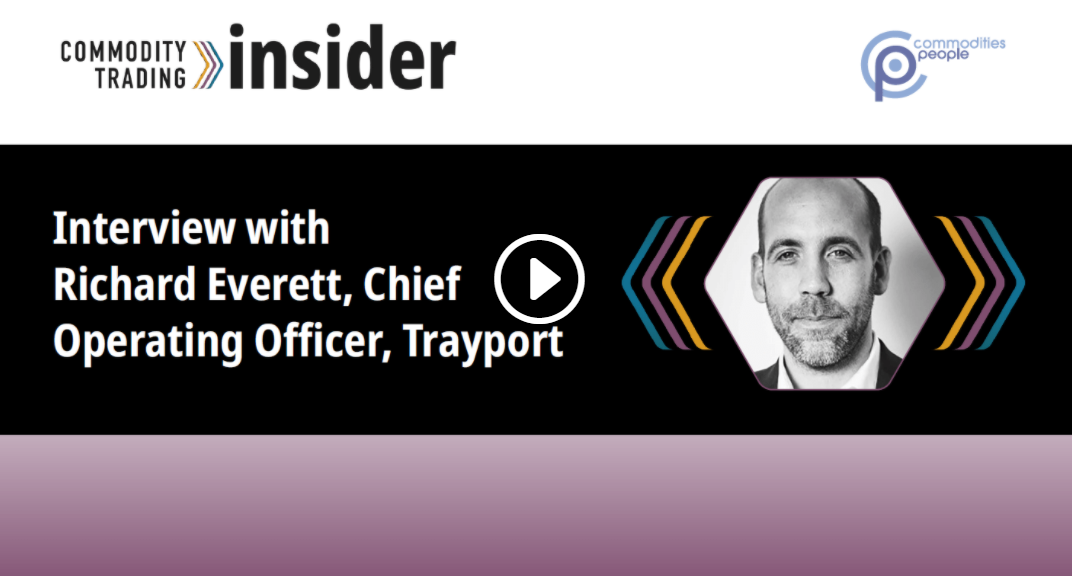Our Chief Operating Officer (COO), Richard Everett, recently talked to Commodity Trading Week and shared his thoughts on energy market trends in 2021. This included topics such as Algos, Japan, digitalisation – and how Trayport will continue supporting the industry through this evolution.
You can read the top points from the interview below.
1. What do you see as the key energy trading industry trends over the next five years? And how will organisations need to adapt to those changes and trends in the years ahead?
The impact of COVID-19 has been significant, and accelerated a number of trends, specifically in Energy Trading, which we can look at broken down into short, medium and long term:
Short Term – Security, Surveillance & System Resilience
Unsurprisingly, the initial trend is around security, surveillance and system resilience. When the pandemic hit, companies had to pivot quickly, our clients were already in a position to connect remotely to our platform, which allowed 5,200+ traders and 40+ brokers and exchanges to work from home within a couple of weeks. Since 2012, we have continually invested heavily in architecture, digitisation and security, ensuring we provide reliable and stable infrastructure for our clients to focus on their growth opportunities.
Medium Term – Digitalisation
COVID has definitely accelerated the trend towards digitalisation in terms of data and automation when operating remotely. We’ve seen demand for products that support workflows and automation really pick up over the last 12 months as customers examine how to operate more efficiently in a distributed manner.
Longer-Term – Energy Transition & Net-Zero Emissions
The Market will be driven by energy transition and the push towards net- zero emissions by mid-century. Markets have been shifting to gas, as illustrated by the Dutch, Title Transfer Facility (TTF) cementing its place as a global benchmark within the last month. Coal continues to decline in terms of trading volumes within Europe, while newer green markets are beginning to develop further. Firms need to be ready for these changes.
2. What kind of a place does automated algorithmic trading have in the market? How is it used, both now and in the future?
There is more algo activity now than ever before; the markets are flashing away as systems are trading alongside humans. There are a number of trends driving this occurrence. Originally, traditional European utilities began to use algos in the short-term power markets as they became volatile upon the shift to renewable generation. Once they realised the benefits of automation, they began to explore how these tools could be also used in gas markets and the futures space. We are working closely with our clients to continue developing algo trading for the future.
As gas has become global, we’ve also seen financial players who only trade with algo strategies entering the market (evidenced by the order rates). We help support our customers by making sure they’ve got the capabilities to compete on the algo side, as well as making sure they meet all the regulatory requirements related to compliant data storage.
Algorithmic trading is about empowering human traders and giving them the tools to compete – ensuring they’ve got the data when they need it, as well as the fastest execution. Ultimately, we want to help traders be able to execute trading ideas as easily as possible. For example, energy traders have recently begun to approach us about colocation solutions to address latency challenges.
3. Outside of European power and gas, which markets will likely evolve next?
The most exciting power market right now is Japan. Remembering it took 20 years for the European power and gas market to become the hugely successful developed market it is today. Japan is in the midst of deregulation, so there are many lessons to learn in terms of designing the market structure. We have a mixture of Japanese and international customers on both the trading and broker sides that incorporate bids & offers, as well as increasing adoption levels of electronic trading. We are excited to be involved in the future of Japan power markets, and help our customers grow.
In other areas, European gas has become an international benchmark in the evolving global gas market, and we look forward to watching that market trend continue to develop and grow. In the slightly more long term, green markets are set to see bigger developments, for which there will be a need for markets to support the overall energy transition.
You can view the full interview here.




